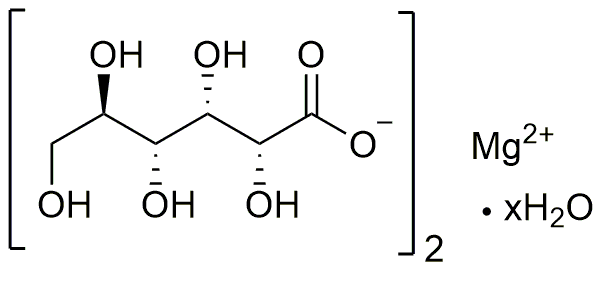Magnesium gluconate hydrate is widely utilized in research focused on:
- Dietary Supplements: This compound is commonly used in dietary supplements to support magnesium levels in the body, which is essential for muscle function and energy production.
- Pharmaceuticals: It serves as an excipient in the formulation of medications, enhancing the bioavailability of active ingredients while ensuring low heavy metal content, making it safer for consumers.
- Food Industry: Used as a food additive, magnesium gluconate can help fortify products with magnesium, appealing to health-conscious consumers looking for enhanced nutritional value.
- Cosmetics: Its moisturizing properties make it a valuable ingredient in skincare products, helping to improve skin hydration and overall appearance.
- Research Applications: In laboratory settings, it is utilized in studies related to magnesium's role in cellular processes, providing insights into its effects on health and disease.
General Information
Properties
Safety and Regulations
Applications
Magnesium gluconate hydrate is widely utilized in research focused on:
- Dietary Supplements: This compound is commonly used in dietary supplements to support magnesium levels in the body, which is essential for muscle function and energy production.
- Pharmaceuticals: It serves as an excipient in the formulation of medications, enhancing the bioavailability of active ingredients while ensuring low heavy metal content, making it safer for consumers.
- Food Industry: Used as a food additive, magnesium gluconate can help fortify products with magnesium, appealing to health-conscious consumers looking for enhanced nutritional value.
- Cosmetics: Its moisturizing properties make it a valuable ingredient in skincare products, helping to improve skin hydration and overall appearance.
- Research Applications: In laboratory settings, it is utilized in studies related to magnesium's role in cellular processes, providing insights into its effects on health and disease.
Documents
Safety Data Sheets (SDS)
The SDS provides comprehensive safety information on handling, storage, and disposal of the product.
Product Specification (PS)
The PS provides a comprehensive breakdown of the product’s properties, including chemical composition, physical state, purity, and storage requirements. It also details acceptable quality ranges and the product's intended applications.
Certificates of Analysis (COA)
Search for Certificates of Analysis (COA) by entering the products Lot Number. Lot and Batch Numbers can be found on a product’s label following the words ‘Lot’ or ‘Batch’.
Numéro de catalogue
Numéro de lot/série
Certificates Of Origin (COO)
This COO confirms the country where the product was manufactured, and also details the materials and components used in it and whether it is derived from natural, synthetic, or other specific sources. This certificate may be required for customs, trade, and regulatory compliance.
Numéro de catalogue
Numéro de lot/série
Safety Data Sheets (SDS)
The SDS provides comprehensive safety information on handling, storage, and disposal of the product.
DownloadProduct Specification (PS)
The PS provides a comprehensive breakdown of the product’s properties, including chemical composition, physical state, purity, and storage requirements. It also details acceptable quality ranges and the product's intended applications.
DownloadCertificates of Analysis (COA)
Search for Certificates of Analysis (COA) by entering the products Lot Number. Lot and Batch Numbers can be found on a product’s label following the words ‘Lot’ or ‘Batch’.
Numéro de catalogue
Numéro de lot/série
Certificates Of Origin (COO)
This COO confirms the country where the product was manufactured, and also details the materials and components used in it and whether it is derived from natural, synthetic, or other specific sources. This certificate may be required for customs, trade, and regulatory compliance.


